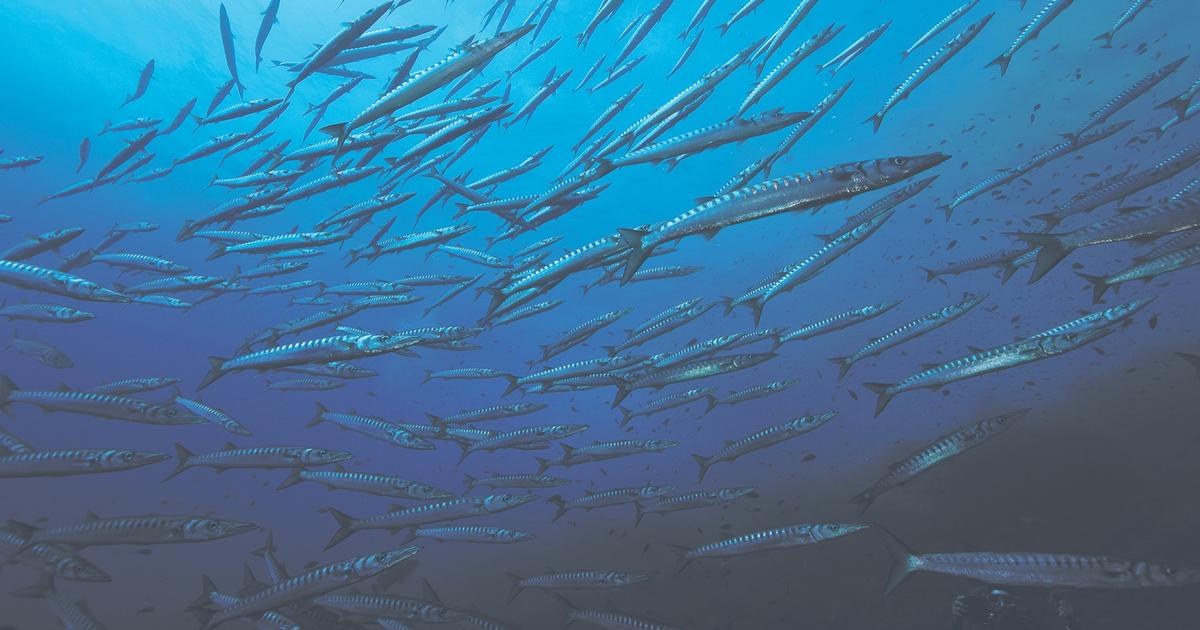If the biodiversity of the Mediterranean is threatened, in particular, of course, by global warming, solutions exist. It is this message of hope conveyed by filmmaker Thierry Ragobert (TheSecrets of Wild Flowers, Natura Europa. When the birds pass) brilliantly in his new Arte documentary series, TheMediterranean Revealed. A collection in three episodes (3 × 52 min) broadcast consecutively, in which is filmed the exemplary case of a paradise found: Port-Cros.
Biodiversity Laboratory
How is it possible that the smallest island of the Hyères archipelago (7 km2) has become in sixty years a formidable laboratory of biodiversity? How to explain that today, in its crystal clear waters, swims the largest concentration of brown groupers in the Mediterranean? A hope that had practically disappeared. This renaissance is due to man, thanks to the creation, in 1963, of the Port-Cros National Park.
Biologist and former repentant spearfishing enthusiast Jo Hamelin, now 85, single-handedly symbolizes the ability of humans to change their behavior to preserve nature. So much so that he participated victoriously in the long fight to ban brown grouper fishing in French territorial waters. We follow him during a magical dive, accompanied by his friend marine ecologist Jean-Michel Cottalorda.
Human initiatives
The two men are greeted by a flock of small sparkling fish, castagnoles whose caudal fin is reminiscent of the tail of swallows. Then a sea spider of good size seems to greet visitors. After crossing several corbs, a species almost extinct elsewhere, a first brown grouper appears, then many others. Jo Hamelin evolves very close to one of them in a kind of friendly ballet. Just out of the water, the old man does not hide his enthusiasm and emotion: "It's magical. This is typical of a protected area. It is both the size of the fish, their number and their behavior. All this changes when the fish is not disturbed, overfished. He then has a relationship with the diver quite calm. It's fun. That, over the years, even decades, I never get tired of. It's just more and more beautiful I think.
»Posidonia meadows
During another dive, marine ecosystem specialist Sandrine Ruitton introduces us to posidonia meadows. These aquatic flowering plants that line the Mediterranean bottoms like vast submerged meadows are particularly prosperous in Port-Cros. They allow the entire food chain to feed itself. Thus, even groups of barracudas find their place here without endangering other species. A nice balance is established. These seagrass beds are the lungs of the sea, because, thanks to photosynthesis, they release oxygen in large quantities. Each square meter produces 10 liters per day, twice as much as the same area of equatorial forest.
Fin whales
Thierry Ragobert also makes us discover the need to protect local cetaceans. Since 1999, France, Italy and Monaco have signed an agreement to safeguard them in the northern Mediterranean. This by creating the Pelagos Sanctuary. We embark on the sailboat of oceanologist Denis Ody, who studies fin whales, these whales 20 meters long. "It is the emblematic species of the region, the second largest animal on the planet, behind its cousin the blue whale," says the enthusiast, who deplores that, each year, between 17 and 35 of these mammals die in collisions with ships.
Finally, on the side of the Strait of Messina, between Calabria and Sicily, another scientist, Eleonora de Sabata, calls for awareness of warming waters. New human initiatives are needed more than ever.

